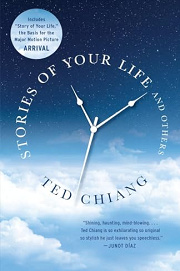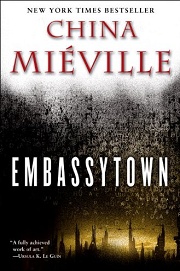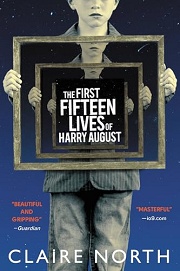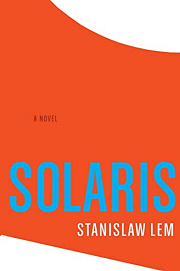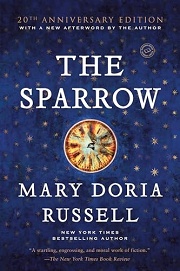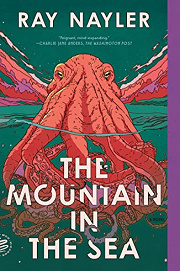Share your thoughts in a quick Shelf Talk!
Story of Your Life by Ted Chiang
A linguist is recruited to communicate with visitors from the stars—and discovers a language that rewrites her understanding of time, memory, and choice. Intimate and mind-expanding, Story of Your Life is the rare first-contact tale that changes how you think about your own.
Have you read this book? Share what you liked (or didn’t), and we’ll use your answers to recommend your next favorite read!
Love Story of Your Life but not sure what to read next?
These picks are popular with readers who enjoyed this book. Complete a quick Shelf Talk to get recommendations made just for you! Warning: possible spoilers for Story of Your Life below.
In Story of Your Life, did you enjoy ...
... the linguistics-driven first contact and Sapir–Whorf-style language puzzles?
Embassytown by China Miéville
If you were captivated by Dr. Louise Banks cracking Heptapod B—those dense, simultaneous logograms that rewire how she experiences time—you'll love how Avice Benner Cho navigates the Ariekei's Language, which can only be spoken by paired human "Ambassadors" in perfect synch. Where Louise and Gary Donnelly puzzle out Fermat's principle and meaning without a Rosetta Stone, Embassytown pushes the idea further: miscalibrated speech acts as a drug, metaphors are contraband, and the very possibility of lying becomes an existential revolution.
... a non-linear life where foreknowledge complicates free will?
The First Fifteen Lives Of Harry August by Claire North
If the out-of-order chapters of Louise seeing her daughter's future—birthday scenes arriving alongside the heptapod sessions—lit you up, this novel turns that sensation into a whole life. Harry is born, lives, dies, and is born again with all his memories intact, forced to confront the same determinism Louise embraces when she invokes the principle of least time. As he learns and "remembers forward," every choice echoes across iterations, raising the same aching question that haunts Louise's decision to have her child anyway: what do we owe a future we already know?
... philosophical first contact that interrogates consciousness and the limits of communication?
Solaris by Stanislaw Lem
If you loved how the heptapods remain ultimately opaque even as Louise attains their "simultaneous" mindset, Solaris meets you at that edge of the unknowable. Psychologist Kris Kelvin orbits an alien ocean that manifests living simulacra—not unlike how Louise's encounters with the heptapods refract through memories of her daughter—pressing him to ask whether true understanding is possible or merely our reflection on an alien surface. It's the same austere wonder and grief you felt when language became a mirror for consciousness.
... intimate, culturally fraught first contact that turns on misinterpretation?
The Sparrow by Mary Doria Russell
If the tense briefings and global misreadings around the heptapods struck you—humans projecting intent before Louise can parse Heptapod A vs. B—this story of a Jesuit mission to Rakhat digs painfully into those gaps. Like Louise carefully choosing how to "speak" in logograms, Father Emilio Sandoz learns a language whose nuances hide devastating assumptions. The narrative, braided across "before" and "after" like Louise's future memories of her daughter, reveals how a single wrong inference in alien contact can break a life.
... idea-rich exploration of minds, language, and determinism?
The Mountain in the Sea by Ray Nayler
If the intellectual rush of Louise and Gary triangulating physics with linguistics hooked you, Nayler's octopus civilization and the AI Evrim offer a similarly heady blend. Marine scientist Dr. Ha Nguyen tries to decode cephalopod "script" and culture under corporate pressure, echoing Louise's methodical approach to Heptapod B and the ethical stakes of what understanding entails. Questions of consciousness, personhood, and the costs of knowing ripple through the plot with the same cool, lucid awe you felt as time itself changed how Louise chose to live.
Unlock your personalized book recommendations! Just take a quick Shelf Talk for Story of Your Life by Ted Chiang. It’s only a few questions and takes less than a minute.
